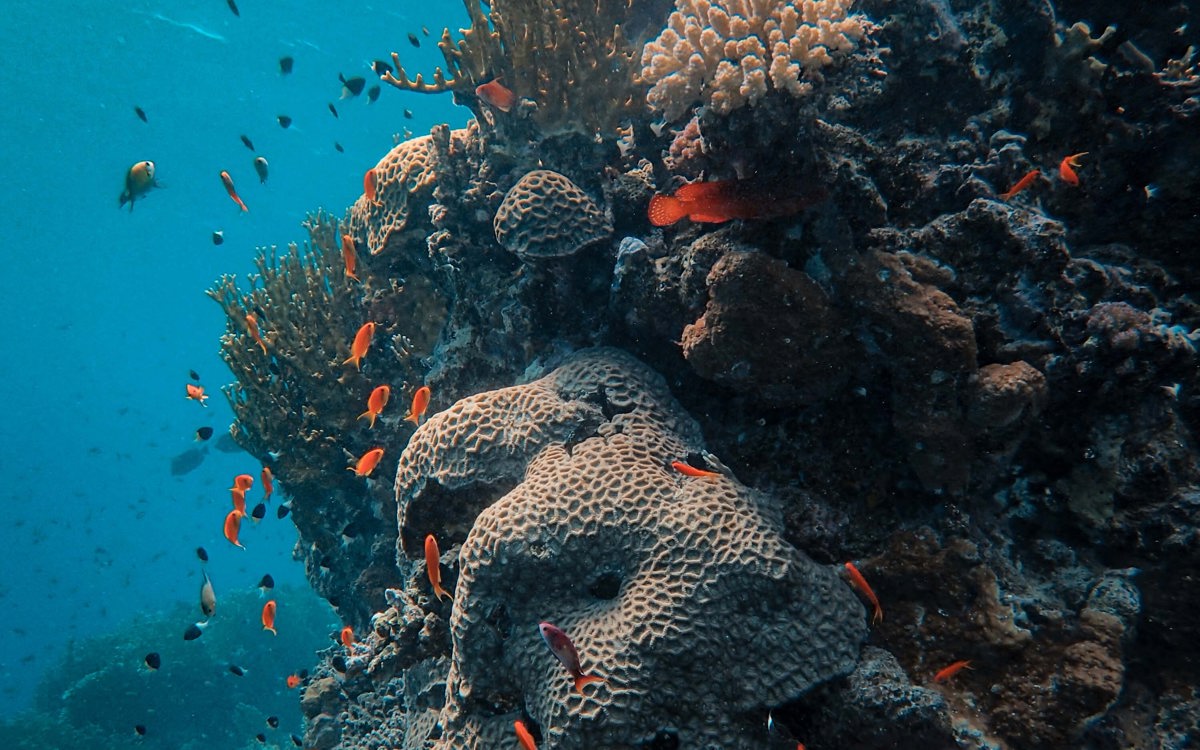By Freya Croft

Climate change, pollution, and overfishing pose existential threats to the marine ecosystems that nourish and connect us.
Changing our relationship with the oceans is not optional, but imperative. That is the belief driving the work of Blue Charter alumna Freya Croft – marine researcher, PhD student, advocate, and ocean lover.

Freya’s connection to the ocean goes back to her childhood years, when she would gravitate towards the waves in search of the unique peace it provided. ‘From a relatively young age, I became aware of a lot of environmental issues, and that sparked my passion for conservation and sustainability,’ Freya recalls. ‘Merging my interest in these areas and my love for the ocean led me to this line of research.’
Her Blue Charter Fellowship to New Zealand’s Massey University was an experience that opened her eyes to the full extent of manmade pressures on the oceans, and some of the possibilities and opportunities to alleviate those pressures.
A circular economy approach to the fishing industry
‘I hadn’t done much work in terms of plastic pollution before, but I knew it was a big issue and it was troubling me whenever I saw it on TV or documentaries,’ Freya recalls. ‘That overwhelming feeling of guilt that as humans – we have left the planet in such a bad state.’
She made her first foray into marine plastics research during her Fellowship. Working with her supervisor Dr Trisia Farrelly, she designed a collaborative research project involving a local fishing company, Moana New Zealand. The project stemmed from the understanding that the fishing industry is responsible for a significant proportion of marine plastic pollution globally.
During her project, Freya investigated plastics use throughout Moana New Zealand’s land- and sea-based operations to produce a comprehensive case study. She then identified practical ways to rethink, reuse, and reduce plastics throughout fishing supply chains to create a toolkit with recommendations for how the management of plastics could be improved throughout the fishing industry.

‘There are a lot of problematic aspects in the industry that require creative thinking to overcome,’ Freya comments. ‘The impact of my research is about who would then pick it up and figure out what they can do to solve the problems. It’s really important that this information points people in the right direction.’
Collaboration, creativity, and commitment
Freya’s journey as a Blue Charter Fellow was not without its challenges, as COVID-19 disrupted her ability to complete fieldwork and stakeholder engagement activities in-person. She also cites cultural differences between academic institutions and private companies as a potential barrier for some aspects of research, as these can operate in different ways.
But for Freya, cross-sectoral collaborations remain key to tackling marine plastics pollution. ‘The only way we can alleviate these seemingly unsurmountable problems is to share knowledge and work together,’ she reflects. ‘Programmes like the Blue Charter Fellowships are so important in terms of the way we can all work together to try overcoming these issues and work in global partnerships.’
Like many others in her field, Freya admits that there can often be a lot of doom and gloom. Facts and figures about the ocean impart a sense of crisis that is offset by the relatively slow pace of political and industry commitments.
But this urgency also motivates Freya to generate new knowledge, build new partnerships, and spread awareness at the intersection between society and nature.
Today, Freya is nearing the conclusion of her PhD research on coral reefs at the University of Wollongong in Australia, studying how engagements with reefs can foster stronger human connections with nature - and facilitate pro-environmental behaviour change.
‘The oceans are just so special, both intrinsically and in terms of what they provide the planet. Humans can’t survive without a healthy ocean,’ Freya reflects. ‘Once we have ruined them to a point of no return, we’re going to really suffer. Let’s take notice of the oceans now – oceans are amazing, special and unique places and we should be doing more to ensure the protection and conservation of marine ecosystems.'
The ACU Blue Charter Fellowships Programme (2019-20) was funded by Waitrose & Partners.
The programme builds upon the successes of the first cohort of Blue Charter fellows (2018-19) funded by the UK Department for Business, Energy, and Industrial Strategy, and forms part of the Commonwealth Marine Plastics Research & Innovation Framework – a global hub which aims to share scientific and technical expertise in this vital area – in support the aims of the Commonwealth Blue Charter.
